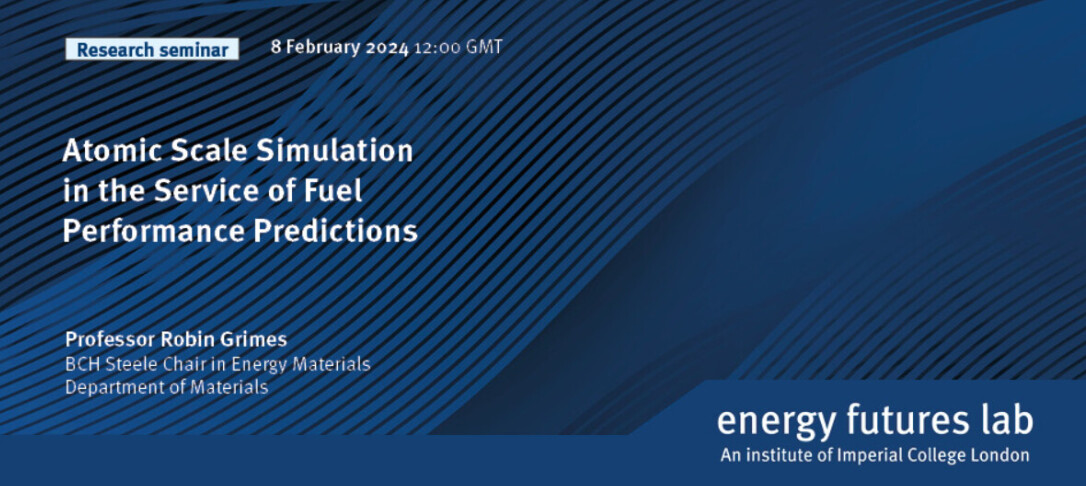
Atomic Scale Simulation in the Service of Fuel Performance Predictions
There has been a constant drive to extend the performance and durability of nuclear fuel under normal and off-normal conditions. While higher burn-up is obviously desirable, so may be higher operating temperature or thermal gradient but also accident tolerance. These require enhanced nuclear fuel data or better mechanistic understanding, especially to underpin the operation safety case. Such data is often difficult to obtain either because the controlling factor takes place on time scales or length scales that are challenging or the hazard is exceptionally demanding on experimental facilities. In these circumstances computer simulations can be especially useful. We can use the results of simulation in different ways: to extend the range of available experimental values, predict the dependence of properties on variables such as temperature and composition, test existing models and assumptions or possibly discover or identify the physics/chemistry behind processes. In this talk we will use such examples to illustrate where computer simulation can add value to the development of nuclear fuel materials.
Biography:
Robin Grimes is the Steele Chair of Energy Materials at Imperial College. From 2017 until Nov 2021 he was Chief Scientific Adviser (nuclear) to the Ministry of Defence and between 2013 and 2018 Chief Scientific Adviser to the Foreign & Commonwealth Office. In his research, he uses computer simulation techniques to predict the behaviour of materials for energy applications including nuclear fission and fusion, fuel cells, batteries and solar cells. Robin is a Fellow of the Royal Society and the Royal Academy of Engineering. Amongst his current more challenging duties he chairs the Arak working group and technical experts group under the JCPOA (the Iran deal). This means he has to coordinate the redesigning and building of a reactor in Iran involving China, Russia, France, Germany and the UK.
About Energy Futures Lab
Energy Futures Lab is one of seven Global Institutes at Imperial College London. The institute was established to address global energy challenges by identifying and leading new opportunities to serve industry, government and society at large through high quality research, evidence and advocacy for positive change. The institute aims to promote energy innovation and advance systemic solutions for a sustainable energy future by bringing together the science, engineering and policy expertise at Imperial and fostering collaboration with a wide variety of external partners.